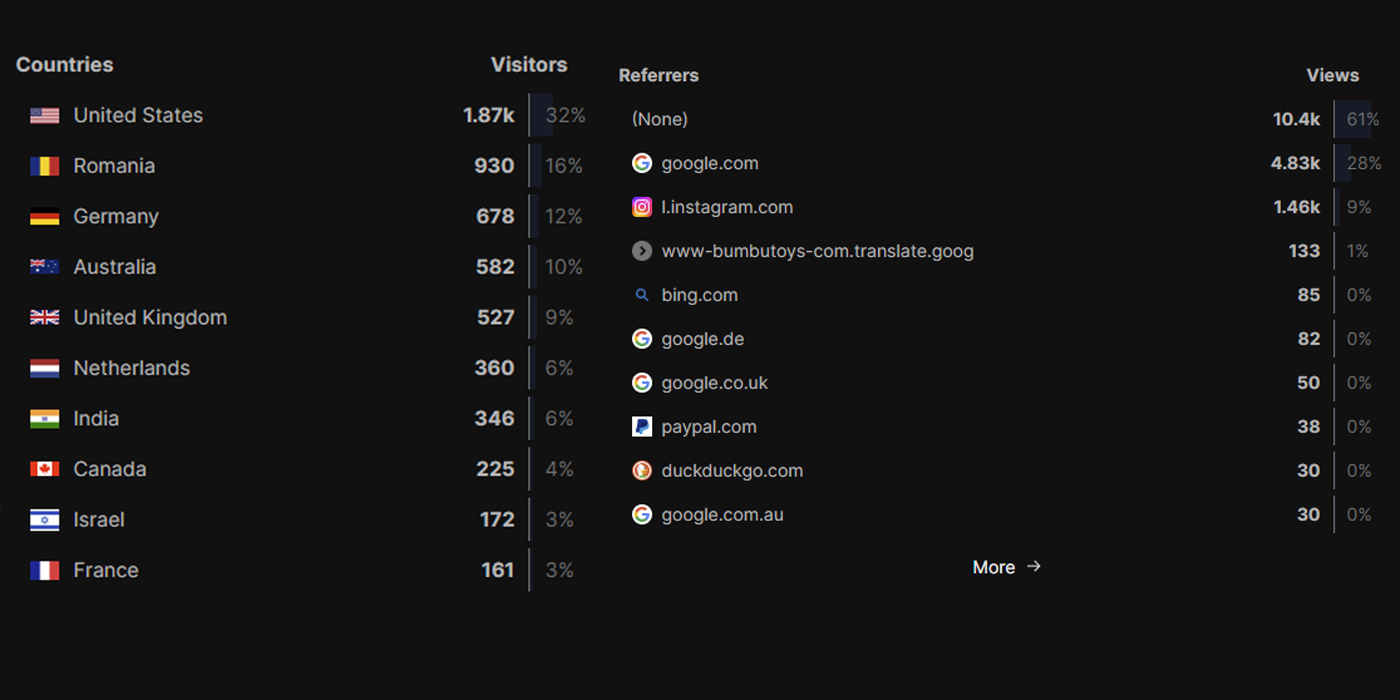What is Social Media Marketing?
Social media marketing is a form of digital marketing that leverages social media platforms to promote products, services, or brands.
It involves creating and sharing content on social networks to achieve marketing and branding goals.
Social media marketing encompasses activities such as posting text and image updates, videos, and other content that drives audience engagement, as well as paid social media advertising.

Benefits of Social Media Marketing for Businesses
- Increased Brand Awareness: Social media platforms provide businesses with an opportunity to reach a broad audience. By consistently posting content and engaging with followers, businesses can significantly increase their visibility.
- Improved Customer Engagement: Social media allows for direct interaction with customers, fostering a sense of community and loyalty. Responding to comments and messages can create a positive brand image.
- Cost-Effective Marketing: Many social media platforms offer free account creation and tools. Paid promotions are often more affordable than traditional advertising methods, making it accessible for businesses of all sizes.
- Targeted Advertising: Social media platforms provide sophisticated targeting options, allowing businesses to reach specific demographics, interests, and behaviors, ensuring that marketing efforts are directed at the most relevant audience.
- Enhanced Customer Insights: Social media analytics provide valuable data about customer behavior and preferences, which can be used to refine marketing strategies and improve customer service.
Creating Your Social Media Marketing Plan
Define Your Social Media Goals
Setting clear, measurable goals is the foundation of any successful social media marketing strategy.
Without defined goals, it’s challenging to measure success and improve your efforts.
Examples of Common Social Media Goals
- Brand Awareness: Increase the visibility of your brand by reaching more people.
- Lead Generation: Attract potential customers and gather their contact information.
- Customer Engagement: Foster a community by interacting with followers through comments, likes, and shares.
- Website Traffic: Drive traffic to your website through social posts and ads.
- Sales and Conversions: Increase sales or sign-ups through targeted campaigns.
Know Your Audience
Understanding your target audience is critical to creating relevant and engaging content.
Knowing who your audience is, what they like, and how they behave online will help tailor your social media strategy to meet their needs.
Using Social Media Analytics
- Demographics: Identify the age, gender, location, and interests of your followers.
- Behavior: Track how your audience interacts with your content. What types of posts do they engage with the most? What times are they most active?
- Preferences: Use insights from social media analytics tools to understand what content resonates best with your audience.

Content Strategy
A well-thought-out content strategy is essential for keeping your audience engaged and achieving your social media goals.
Creating a Social Media Content Calendar
- Plan Ahead: Outline your content for each month, including key dates and events relevant to your business.
- Diversify Content: Mix different types of content such as blog posts, videos, infographics, and user-generated content.
- Consistency: Maintain a consistent posting schedule to keep your audience engaged and coming back for more.
Types of Content That Perform Well
Images and videos tend to attract more engagement than text-only iposts, making visual content highly effective.
Real-time content, such as stories and live streams, can create a sense of urgency and exclusivity.
Sharing content created by your followers, known as user-generated content, can build community and trust.
Additionally, educational content, including blog posts, how-to guides, and informative articles, helps establish your brand as an authority in your industry.

Create a Social Media Marketing Strategies
Creating and Sharing Content
Creating high-quality content is essential, but knowing how and when to share it is equally important.
To create high-quality social media posts, you should use high-resolution and visually appealing images and videos.
Writing engaging captions is also crucial; they should be interesting, informative, and include a call to action. Incorporating relevant hashtags can significantly increase the visibility of your posts.
Consistency in posting is vital for keeping your audience engaged and aware of your brand.

Using a content calendar can help maintain regularity in your posts, ensuring that you stay on your audience’s radar.
Hashtags, tagging, and geo-location play significant roles in expanding your reach.
Using popular and relevant hashtags allows you to connect with a broader audience.
Tagging popular social media users or brands can increase the chances of your post being shared, thereby extending your reach even further.
Adding a location to your posts can attract local followers and customers, enhancing your engagement within specific geographic areas.
Engaging with Your Audience
Engagement is key to building a loyal following and fostering a sense of community around your brand.
Interacting with followers is essential for this engagement.
Responding to comments on your posts shows appreciation and keeps the conversation going.
The importance of prompt and professional responses cannot be overstated.
Quick and professional replies to inquiries and feedback show that you value your customers, which can significantly enhance your brand’s reputation.
This responsiveness builds trust and strengthens the relationship between your brand and its audience.
Running Paid Social Media Campaigns
Paid social media advertising can significantly boost your reach and conversions.
Paid social media campaigns involve promoting your content to a larger audience through various means, such as boosted posts, display ads, or video ads.
To create effective social media ad campaigns, start by defining your objectives.
Clearly outline what you aim to achieve, whether it’s gaining more followers, increasing website traffic, or boosting sales.
Next, ensure you target the right audience by using the available targeting options to reach your ideal customer.
Lastly, monitor the performance of your ads and adjust your strategy based on the results to optimize your campaign’s effectiveness.
Best Social Media Marketing Tips
Leveraging influencer marketing can significantly boost your brand’s visibility and credibility.
Influencers, with their dedicated followings, can effectively spread your brand message and gain the trust of their audience.
Partnering with influencers offers several benefits.
It can increase your brand’s reach by introducing it to a larger audience and enhance your credibility through trusted recommendations.
Influencers often have niche audiences, allowing for more targeted marketing efforts.
Additionally, they can create high-quality, engaging content for your brand.

To find and collaborate with the right influencers, start by identifying your goals.
Clearly define what you want to achieve, whether it’s brand awareness, increased sales, or higher engagement.
Check their engagement rates to ensure they have a genuine and active following.
Build relationships by reaching out with personalized messages, offering value, and explaining how the partnership can benefit both parties.
Lastly, set clear expectations by outlining the campaign goals, deliverables, and compensation to avoid any misunderstandings.
FAQs – Benefits of Social Media Marketing Platforms
How to Start Social Media Marketing?
The key to social media marketing goals, begin by setting your goals to determine what you want to achieve.
Next, choose the social media platforms that best suit your business and audience.
Create and optimize your social media profiles, then develop a content plan with a mix of posts and create a content calendar.
Engage with your audience by responding to comments, messages, and mentions.
Finally, use analytics tools to track your performance and make data-driven adjustments.
What are the 7 C’s of Social Media Marketing?
The seven C’s of social media marketing are content, community, conversation, channel, campaign, conversion, and context.
Create valuable and relevant content that attracts and engages your audience.
Build a loyal following by fostering a sense of community around your brand and engage in two-way conversations to build relationships.
Choose the right social media channels for your business and audience, plan and execute targeted campaigns to achieve specific marketing goals, and focus on converting followers into customers through strategic content and offers.
Understand the context of each platform and tailor your content accordingly.
Is Social Media Marketing Easy?
Social media marketing can be challenging, especially for beginners, as it requires creativity, strategic thinking, and ongoing analysis.
However, with dedication and the right resources, anyone can learn and improve their social media marketing skills.
What is SMM Strategy?
A Social Media Marketing (SMM) strategy is a comprehensive plan that outlines your social media goals, tactics, and metrics.
It guides your actions and helps ensure that your efforts are effective and aligned with your overall marketing objectives.
How to Do a Social Media Strategy?
To create a social media strategy, start by setting your goals and defining what you want to achieve.
Research your audience to understand who they are and what they want.
Analyze your competitors’ social media presence and strategies.
Choose the social media platforms that best suit your goals and audience.
Develop a content calendar with a mix of engaging content.
Implement your strategy by posting content consistently and engaging with your audience.
Use analytics to track performance and make necessary adjustments.
Conclusion – Social Media Marketing Resources
Effective social media management is crucial for leveraging social media networks to create a social media marketing campaign.
By developing a comprehensive social strategy, businesses can utilize the best social media marketing platforms to reach their target audience.
It’s essential to use a social media plan that incorporates regular posting and engagement on social platforms to maintain visibility and foster community.
Posting on social media consistently and engaging with followers can enhance brand loyalty and drive growth.
To maximize the impact, businesses should choose the appropriate social channels and tailor their content to fit each platform’s unique context.
By doing so, they can execute an effective social media marketing strategy that aligns with their overall business goals and ensures sustained success in the digital landscape.